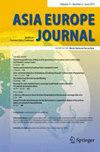Spanish elite’s perceptions of the European Union-China Comprehensive Agreement on Investment (CAI) are positive given its economic and normative prospects and its compatibility with Spain’s policy objectives. Spanish Ministry officials and business representatives welcome the potential progress on market access, level-playing field, and sustainable development, as it would offer economic opportunities in the Chinese market and bilateral investment, without precluding increased monitoring of Chinese economic activities. The agreement is in line with their willingness to increase bilateral ties under a normative framework that defends Spanish interests and values. Spanish elites consider that it is compliant with Spain’s and the European Union’s strategies and characterization of China as a partner, competitor, rival, which acknowledges that China is a key economic and multilateral partner, but also promotes a unified European China strategy, European strategic autonomy, and initiatives that tackle China’s challenges related with human rights, or investments in strategic sectors. Hence, Spanish political parties supported the resolution of the European Parliament freezing an eventual ratification of the CAI whilst Chinese sactions against European stakeholders are in place. Spanish elites also value that the agreement does not prevent greater cooperation with the United States, a key ally and more significant partner than China. Some political and private groups have expressed their opposition to the agreement, but their impact is likely to be limited. Finally, the practical implications—and reception—of the agreement will depend of its implementation.


